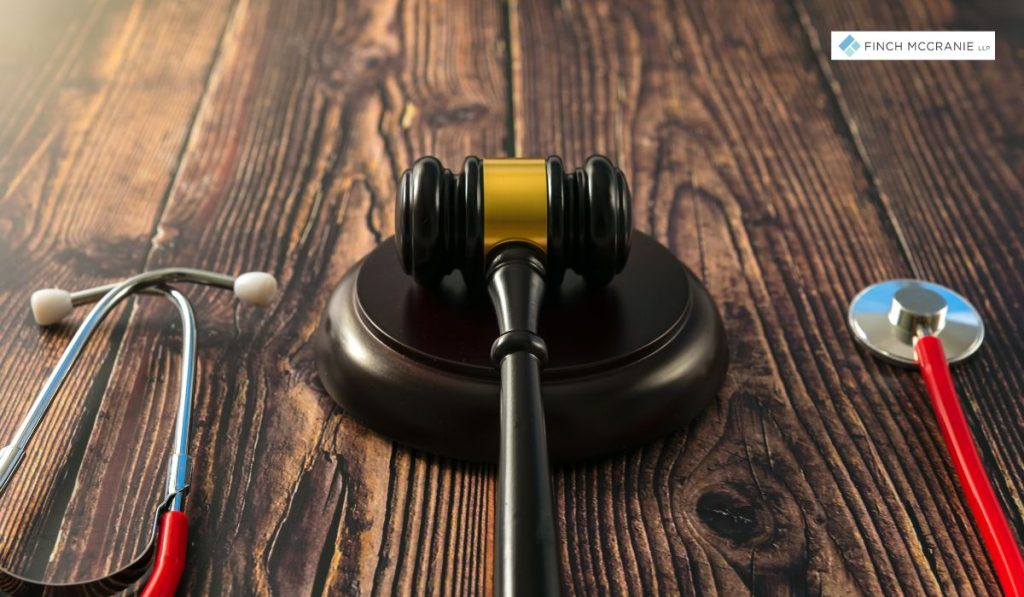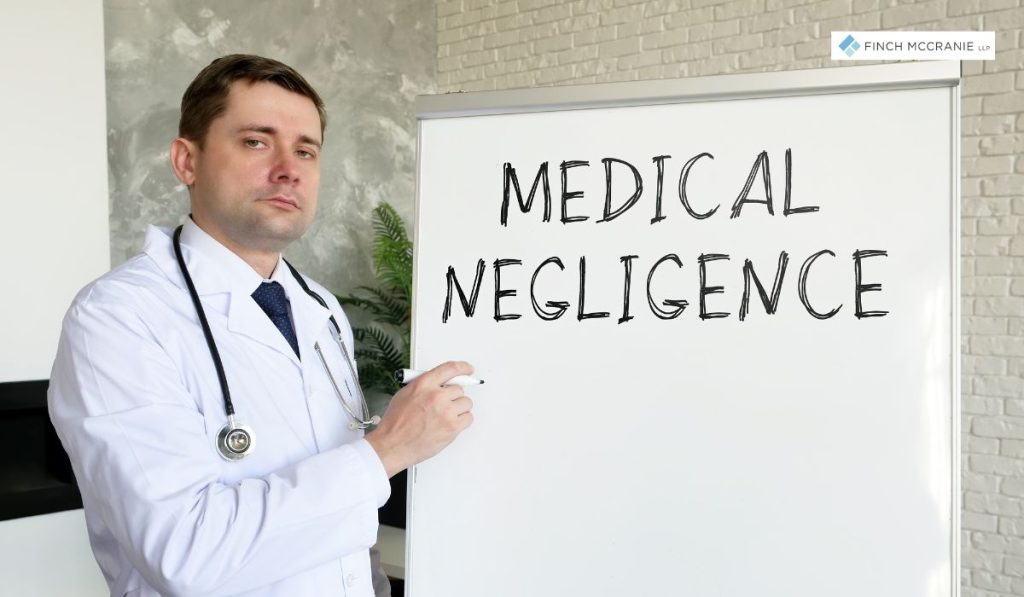Medical negligence lawsuits can be daunting, but understanding the intricacies of the legal process is crucial for success.
In this guide, we’ll navigate the silent battle of medical negligence lawsuits, shedding light on critical aspects, strategies, and tips to help you emerge victorious.
Understanding Medical Negligence
Medical negligence occurs when a healthcare professional deviates from the standard of care, harming the patient.
It’s essential to recognize the signs and understand that not all medical complications result from negligence.
Recognizing Negligence
To build a strong case, you must identify clear instances of negligence.
It might include misdiagnosis, surgical errors, medication mistakes, or inadequate communication about potential risks.
Assembling Your Arsenal: Gathering Evidence
Evidence is the backbone of any successful lawsuit.

Meticulous documentation is essential if you want to win your medical negligence case.
Medical Records
Start with obtaining and carefully reviewing your medical records.
These documents serve as a treasure trove of information, highlighting discrepancies or deviations from standard procedures.
Expert Testimonies
Secure expert witnesses who can provide professional testimony about the quality of care and whether the health care provider’s actions were negligent.
Their testimonies can be pivotal in establishing your case.
Gathering Witness Statements
Remember to underestimate the power of eyewitness accounts.
Collect statements from individuals who observed the negligence or its aftermath.
Their perspectives can bolster your narrative.
Building Your Case: The Legal Chessboard
Assembling your evidence is akin to positioning your chess pieces strategically.
Understanding the legal chessboard is vital for a successful move.
Statute of Limitations
Be mindful of the statute of limitations, as it varies by jurisdiction.
Submitting a claim by the deadline is crucial; Otherwise, your case may be dismissed.
Burden of Proof
In a medical negligence lawsuit, the burden of proof rests on the plaintiff.
You must convincingly demonstrate that the healthcare professional breached the standard of care, leading to your injury.
Negotiation and Settlement
Consider the option of negotiation or settlement.
Often, parties opt for a resolution before reaching the courtroom, saving time and emotional stress.
However, ensure any settlement is fair and compensate adequately for your damages.
The Courtroom Showdown: Presenting Your Case
Stepping into the courtroom can be nerve-wracking, but proper preparation can make a significant difference.
Choosing the Right Attorney
Selecting a seasoned attorney with experience in medical negligence is paramount.
They will guide you through the legal maze, providing expertise and a strategic approach.
Courtroom Etiquette
Understanding courtroom etiquette is crucial.
Dress appropriately, maintain composure, and follow your attorney’s guidance.
The plaintiff’s demeanor often sways juries.
Cross-Examination Tactics
Be prepared for intense cross-examination.
Defence attorneys will scrutinise your case, attempting to poke holes.
Stay composed, stick to the facts, and trust your legal representation.
Post-Battle: Coping with Verdicts

Whether victorious or facing a setback, dealing with the aftermath is crucial to the medical negligence lawsuit journey.
Appeal Options
If the verdict is unfavourable, explore the possibility of an appeal. Consult with your attorney to determine the viability of challenging the decision.
Emotional Support
Legal battles are emotionally taxing. Seek support from friends, family, or support groups to help cope with the stress.
Emotional well-being is an integral part of the healing process.
Conclusion: Navigating the Silent Battle
Prepare for medical negligence lawsuits by gaining knowledge, collecting strong evidence, and tackling the silent fight for justice head-on.
Check out our detailed guide at Finch McCranie, where we simplify crucial aspects, strategies, and tips to help you win in your quest for justice.
Remember, having an excellent legal team, understanding the details, and executing a solid strategy are your friends in this silent battle.
Your fight for justice deserves to be heard – let’s make it clear and strong. Explore the guide now at Finch McCranie!
FAQs
What is medical negligence, and how is it different from regular medical complications?
Medical negligence occurs when a healthcare professional deviates from the standard of care, causing harm to the patient. It’s crucial to distinguish it from regular complications, as not all adverse outcomes result from negligence. Negligence involves a breach of the accepted standard of care.
How do I recognize instances of medical negligence?
Clear instances of negligence may include misdiagnosis, surgical errors, medication mistakes, or inadequate communication about potential risks. Recognizing negligence involves identifying deviations from standard procedures that directly contribute to harm.
Why is meticulous documentation essential in a medical negligence case?
Meticulous documentation serves as the backbone of a successful lawsuit. Starting with a careful review of medical records helps highlight discrepancies or deviations from standard procedures, providing tangible evidence to support your case.
How can expert testimonies strengthen my case in a medical negligence lawsuit?
Expert witnesses provide professional opinions on the standard of care and whether the healthcare provider’s actions constituted negligence. Their testimonies carry weight in establishing the breach of care and can be pivotal in building a solid case.
What role do eyewitness statements play in a medical negligence lawsuit?
Eyewitness statements provide valuable perspectives on the negligence or its aftermath. These statements can strengthen your narrative, offering additional layers of evidence and credibility to your case.
Why is understanding the legal chessboard crucial in a medical negligence case?
Understanding the legal chessboard involves being aware of factors like the statute of limitations and the burden of proof. Filing within the specified time frame and convincingly demonstrating the breach of care is essential for a successful case in the legal chessboard.
Should I consider negotiation or settlement in a medical negligence lawsuit?
Negotiation or settlement can be a viable option to save time and emotional stress. However, ensure any settlement is fair and adequately compensates for your damages. Consult with your attorney to assess the best course of action.
What are some courtroom etiquette tips for a medical negligence case?
Dress appropriately, maintain composure, and follow your attorney’s guidance. Courtroom etiquette is crucial, as the plaintiff’s demeanor often influences juries. Proper preparation and adherence to etiquette can make a significant difference.
How can I cope with the emotional toll of a medical negligence lawsuit?
Seek support from friends, family, or support groups to help cope with the emotional stress of legal battles. Emotional well-being is integral to the healing process. Remember, it’s essential to prioritize self-care throughout the journey.
What should I do if the verdict is unfavorable in a medical negligence lawsuit?
Explore the possibility of an appeal if the verdict is unfavorable. Consult with your attorney to assess the viability of challenging the decision. Understanding your appeal options is crucial for navigating the post-verdict phase.
 Trial Attorney Blog
Trial Attorney Blog

